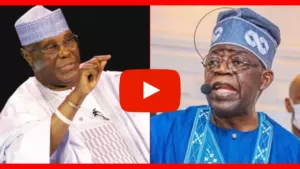FG Scraps, Merge and Relocate Major Agencies

The Federal Government of Nigeria has made a bold move to merge, relocate, and scrap several agencies, including FRCN, ICPC, NCDC, NCC, and NTA, among others, aiming to cut the cost of governance and streamline operations. Notable changes include the merging of FRCN and VON, NACA and NCDC, and the relocation of NALDA to FMARD. The Public Complaints Commission has been merged with the NHRC, while BCDA is now a department in NBC. This decision has sparked mixed reactions, with some applauding the move for its potential to improve efficiency, while others express concern for the employees who may lose their jobs.
The FG announced the scrapping of several major agencies, including FRCN, ICPC, NCDC, NCC, and NTA, among others. It was a decision that shook the foundations of bureaucracy and sent ripples of both excitement and concern through the public.
The government, led by the wise and cunning President Bola Tinubu, had long been looking for ways to cut costs and improve efficiency. This decision was part of the implementation of the Oronsaye Report, which had been gathering dust for years. The report recommended the merging, scrapping, and relocating of various agencies to reduce the cost of governance and improve efficiency.
As the news broke, people took to the digital streets of X (formerly known as Twitter) to share their thoughts and reactions. Some praised the government for its bold move, seeing it as a step towards a more efficient and less bureaucratic future. Others expressed concern over the potential loss of jobs and the impact on the services these agencies provided.
The government, however, was not swayed by the cacophony of opinions. They moved forward with their plan, merging agencies like FRCN and VON, NACA and NCDC, and relocating others like NALDA to FMARD. It was a grand restructuring that would change the face of governance in Nigeria.
As the dust settled and the people adjusted to the new order, only time would tell if this bold move would lead to a more efficient government or if it would be just another footnote in the annals of Nigerian bureaucracy. But one thing was for sure: the Federal Government had made a decision, and it was sticking to it, come what may.







